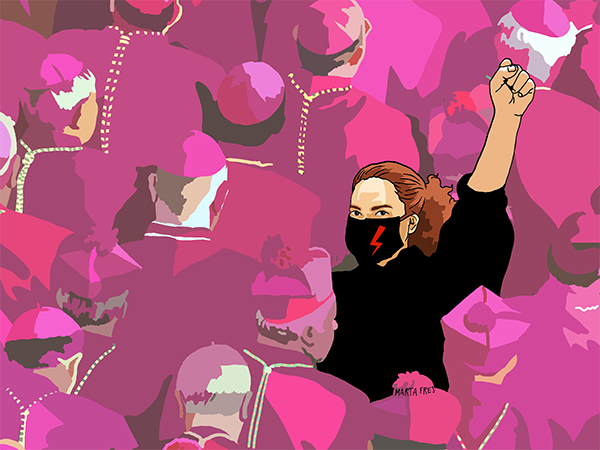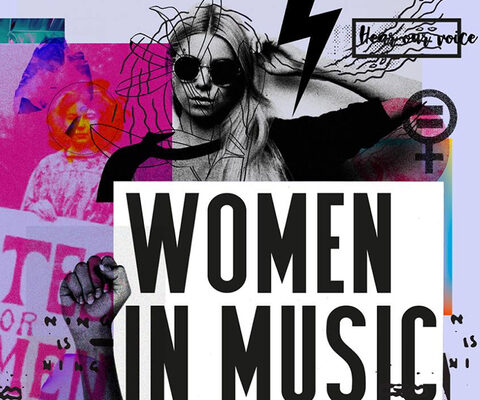As the quote “Give them bread and circuses, and they’ll never revolt” from one of Ancient Rome’s most observational poets, Juvenal, is now circulating throughout social media in the form of a meme, in a time when grassroots venues are under threat and it is getting increasingly harder for anyone but industry plants to make their mark, I couldn’t help but question the intentionality of the silence of oppression.
The suppression of culture and expression by oppressive regimes has long been a means of population control and is a multifaceted and deeply intricate issue, intertwining the threads of power, fear, and human psychology. This article will explore the phenomenon of artistic expression, highlight contemporary instances of suppression and propose ideas of how to evoke positive cultural change.

How and Why Culture is Quashed for Control
At its core, culture is the heartbeat of a society’s identity, a vibrant symphony of ideas, art, language, and customs. It’s a mirror reflecting the collective soul of a people. When a regime feels threatened by the power of this reflection, it may attempt to shatter the mirror, fearing that the image it casts could inspire dissent or challenge the status quo.
Suppressing culture and expression serves several nefarious purposes:
Erasure of Dissenting Voices: By muzzling poets, artists, and thinkers, regimes attempt to silence the voices that question, challenge, and inspire. In the absence of these voices, a monochrome narrative prevails, one that paints the regime in an unchallenged light.
Control Through Fear: The suppression often involves punitive measures against those who dare to express dissenting views. This creates an atmosphere of fear, discouraging others from stepping out of line. It’s a chilling effect, where the mere possibility of repercussions leads to self-censorship.
Manipulation of Identity: By controlling cultural outputs, regimes can rewrite history, manipulate national identity, and create a version of reality that serves their interests. This can be a powerful tool in shaping public perception and loyalty.
Distraction and Diversion: Here, Juvenal’s insight rings particularly true. By providing the masses with superficial entertainment (“circuses”), regimes can distract them from more pressing issues. This diversion can be a potent tool in keeping the populace preoccupied and complacent.
Fragmentation of Society: By suppressing certain cultural aspects while promoting others, regimes can create divisions within society. This ‘divide and rule’ strategy ensures that a united front against the regime is less likely to form.
In essence, oppressive regimes fear the power of culture and expression because they are catalysts for change and revolution. They are the sparks that can ignite the fire of dissent. By suppressing these elements, regimes maintain their grip on power, often at the cost of the human spirit and the vibrant mosaic that makes up a society’s true identity.
How Creativity is Being Progressively Inhibited in the UK
While some of the challenges faced by artists and other creatives in the UK can be considered unintended consequences of governmental policies and the damage done by the COVID-19 pandemic, it unequivocally cannot be argued that the current government is doing its best to see culture thrive following Brexit.
Here are a few examples of how the current government has damaged culture in the UK:
Funding Cuts to the Arts:
Over recent years, there has been a trend of reduced funding for the arts. Local councils, facing budget cuts from central government, have often found themselves needing to reduce spending on cultural initiatives. This has led to a decrease in support for local arts projects, community programs, and educational initiatives in the arts. For some perspective, since 2010, spending on arts development and support has been almost halved from £3 to £1.52 per person.
Changes in Education Policy:
The emphasis on the English Baccalaureate (EBacc) in schools, which prioritises core academic subjects, has led to a decline in the uptake of creative subjects like music, drama, and art. This shift potentially impacts the long-term health of the UK’s cultural sector by reducing early exposure to and engagement with the arts.
“Arts subjects are disappearing from the curriculum in England at a frightening rate, and we should all be alarmed. The damage goes far beyond the economic; it requires a long-term coherent plan and investment in creative arts education. We know that governments often struggle to value what they can’t easily measure. This government appears to be incapable of valuing even the things that it can.” – Michele Gregson, CEO, National Society for Education in Art and Design
Gentrification and Cultural Spaces:
Urban development and gentrification in cities across the UK have led to the closure of numerous grassroots music venues and art spaces. While not directly a government policy, there is a perception that local and national government policies have not sufficiently protected these cultural hubs. 2023 was dubbed the worst year for grassroots venue closures, with a total of 125 grassroots venues closing each week.
It’s important to recognise that these issues are often interlinked and can have a cumulative effect on the cultural landscape. While not always a direct result of government policy, these factors can create an environment where cultural expression and development face significant challenges.
What Will Make the UK Culturally Thrive Again?
Reversing the damage done to the UK cultural sector requires a multifaceted approach, involving both government intervention and grassroots initiatives. The goal is to create a sustainable and vibrant cultural ecosystem that supports artists, cultural institutions, and the wider community.
The potential strategies to reverse cultural damage should start with increasing government funding, implementing tax reliefs and other incentives, offering grants and scholarships, negotiating better terms for UK touring artists following Brexit and reinforcing the importance of education policy.
From there, protective measures for independent venues and cultural hubs must be put in place, followed by local cultural initiatives and partnerships between the private sector and cultural institutions. The mainstream media will also have a role to play in promoting UK cultural content, and ensuring diverse representation is key to ensure everyone has a voice in the future of the cultural sector.
By implementing these strategies, the UK can not only work towards reversing the damage done to its cultural sector but also lay the foundation for a more resilient and flourishing cultural landscape in the future.
Article by Amelia Vandergast




No Comments